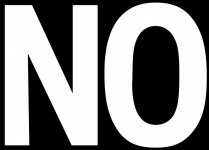I think there is a balance. I have learned some very useful knowledge from Dr Daves website that has given me greater confidence in executing. At the end of the day I think it is confidence that is what matters, along with an ability to allow your body to execute. If you are the type of guy who has spent the hours on the table to learn what a shot feels like and you execute with confidence then you are on the right track imo. If you are the type who has to calculate how to draw a ball one diamond... using a certain speed of stroke along with a certain tip amount of low then you will never be consistent enough to play good. The correct way is to know what drawing a ball one diamond on that table feels like and do it.
The same can be said for aiming. If you are figuring the speed, how much deflection, how much curve, throw, etc. you are being too scientific imo. Keep it simple and execute imo. People dont believe in themselves enough imo. Lets look at aiming as an example. I know a guy who swears he has an issue with aiming and he prooves this to himself everytime he plays pool, 8 ball 9 ball it dont matter although he plays some pretty good onehole. But even though he "has issues with aiming" when it comes to rotation games or eight ball if you play him some golf on the snooker table he is able to lag the jaws or else pocket tough shots everytime even when using side english. I thought there could be a fault in his stroke when he shoots harder making the difference but nope, he shoots hard three and four railers on the golf table and hits exactly where he is aiming and he puts the cueball where he wants it. Its all in his head. His confidence on the golf table is the difference. Logically, if he can hit precise diamonds on the golf table with perfect speed he should be able to hit 4 1/2" pockets but in his mind he "has an issue with aiming" and you can just hear the calculations going through his head on the pool table. When you talk to him it's easy too see what his problem is. He is the guy who can tell you the margin for error for each shot and how hard it is to be that precise with all of the factors involved. When he has to make a shot, like in 10 ball, he goes into calculation mode, looking for exact contact points, factoring in deflection and curve and throw etc. When he has the luxury to lag he thinks differently.
My post is not directed toward Satori but more as an extension of thoughts stimulated by his post.
In my time here I have seen many times someone say things that would scare the beejeebies out of me ever trying to use english if I had not already been using it since I was 13.
It's not that difficult but the formula involved for each individual shot would be beyond probably 90% of those playing pool.
I'd like to see the formula for hitting the center of the cue ball given that a human being is doing the execution.
IMHO the 'science' of pool rather often isolates in an attempt to explain pool & stops short or leaves out certain parameters especially when making a comparative 'conclusion'.
We're stuck to the planet by gravity. We don't use it. Before a certain time we had no recognition of it. We dropped something it fell. So someone 'realeyesed' that if they wanted to throw a rock at a saber toothed tiger they had to give the rock elevation in order to get it to the tiger. They were not using science. Some things are innate.
I find it a bit odd that the word science is used as a noun but the definition is more of a verb in that 'it is the activity of study in order to gain knowledge'.
So... to me there is innate knowledge & there is scientific knowledge.
We don't uses any conscious scientific knowledge to learn how to walk & then there is talking.
Science has learned much about the human brain but there is still much that science does not know about the human brain & even less about the 'human mind'.
I once coached a mentally challenged man to beat his neighbor in a game of 8 ball. He did exactly what I told him to do including the use of english. His neighbors mouth hung open in amazement.
sci·ence
ˈsīəns/Submit
noun
the intellectual and practical
activity encompassing the systematic
study of the structure and behavior of the physical and natural world through
observation and
experiment.
"the world of science and technology"
synonyms: branch of knowledge, body of knowledge/information, area of study, discipline, field
"the science of criminology"
a particular area of this.
plural noun: sciences
"veterinary science"
a systematically organized body of knowledge on a particular subject.
"the science of criminology"
synonyms: physics, chemistry, biology; More
